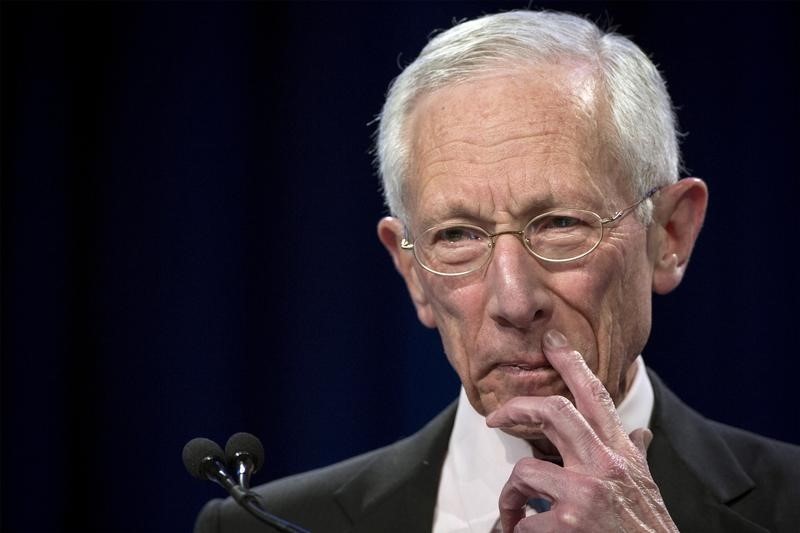By Michael Flaherty and Howard Schneider
STONE MOUNTAIN, Ga. (Reuters) - A top U.S. Federal Reserve official on Monday suggested stress tests and certain capital requirements to contain the risks within the non-bank lending sector, while acknowledging there is little the central bank can do to impose such restrictions.
Fed Vice Chairman Stanley Fischer offered a framework to more tightly regulate the lending activities of hedge funds, mutual funds and other non-bank entities - often referred to as shadow banks - though he was careful to show that he was offering suggestions and not potential central bank rules.
Fischer also gave a nod to the Bank of England, which formed a nimble and powerful financial stability arm, and suggested the Fed is headed in a similar direction.
"To promote solvency, one could impose ratio-type capital requirements, such as leverage-ratio requirements or risk-based requirements," Fischer said, referring to non-bank lenders.
Fischer, in remarks at an Atlanta Federal Reserve Bank event, added that shadow banks should also consider conducting a stress test on themselves.
The Fed has ramped up its focus on crisis-prevention, recognising the regulatory failures that led to the 2007-09 financial industry collapse.
Fischer and other Fed officials have pointed to the Bank of England's financial stability arm, known as the Financial Policy Committee, as an ideal body to combat financial risks, as it has the legal power to impose policy changes on regulators. The U.S. Financial Stability Council (FSC), a group of 10 U.S. regulatory agencies, lacks that kind of power.
"I think the Bank of England has a particularly good way of doing it," Fischer said, referring to the task of financial stability, in response to a question after his speech. "I think the Fed might be tending in that direction."
The Fed regulates banks and systemically important financial institutions, but it does not hold the same power over non-bank lenders, even though the sector generates two-thirds of U.S. non-financial credit market debt.
Fischer on Monday said the key to regulating non-banks is focusing on solvency, liquidity and close monitoring of the system.
Fed officials have pointed to the $2.7 trillion U.S. money market industry as cog in the financial system that could see disruptions when the central bank moves ahead with raising interest rates, a move expected sometime later this year.

"Only time will tell" if money market reforms succeed in preventing runs on the institutions, Fischer said, reminding listeners that the industry is not subjected to capital rules.